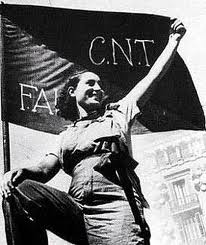Looking back at the Commune coverage of the riots.
Barry Biddulph suggests that we need to find a way to engage with the contradictory and elemental nature of the recent riots.

Riots. We should have seen them coming. After all, the combustible material has been stacking up for some time. The majority of rioters who appeared in court were under 24, and from poor neighbourhoods. Strikingly: 41/% of suspects live in one of the top 10% of the most deprived places. [1] We already knew that in Hackney there are 22 claimants for every job. In Haringey, where Tottenham is located, there are 29 claimants for every vacancy. [2] Youth unemployment currently stands at 949,000. [3] Add to these grim figures, the volatile mix of police harassment, affordable housing shortage, cuts in benefits, resentment at bankers and parliamentary politicians robbing the tax payers, and what do we have? Alienation, and disaffection. As Naomi Klein put it in the Guardian,” When you rob people of what little they have, in order to protect the interests of those who have more than anyone deserves, you should expect resistance.”[4]
Even so, many on the left did not expect this resistance. Furthermore, they did not like the look of it. The Socialist Party was particularly disgusted. In their opinion, it was a tragedy for small shop keepers, and devastating for working class communities. As if capitalism in crisis wasn’t. The SP leadership was worried about the lack of police numbers. The view of Peter Manson of the CPGB was that the riot targeted working-class people. In a moment of self-doubt, he mused that at one level, it was a collective rebellion but on balance it was without political content with anti social gangs having a moment of power. [5] But the rioters’ most comprehensive critic was the Alliance for Workers’ Liberty. The riot would have no positive effect. Indeed, it would have reactionary consequences. It would strengthen law and order, stimulate racism as well as alienate organised labour. [6] Continue reading “Riots : when normal behaviour is meaningless.” →












